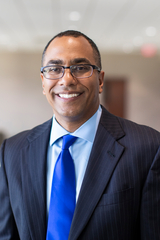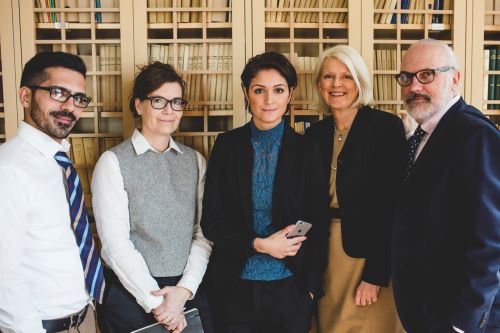By: David A. Grenardo, Professor of Law and Associate Director of the Holloran Center for Ethical Leadership in the Professions, University of St. Thomas School of Law
Every time a bell rings, an angel gets its wings…and Neil Hamilton finishes another article. Neil Hamilton, the Holloran Professor of Law and Co-Director of the Holloran Center for Ethical Leadership in the Professions at the University of St. Thomas School of Law, has completed a new professional identity formation article. Hamilton wrote his latest article for the University of St. Thomas Law Journal’s spring 2023 symposium on professional identity formation. Hamilton’s article explores a new approach to the required Professional Responsibility course that provides reasonable coverage of the law of lawyering, legal analysis, and compliance, but also helps each student understand and participate in a community of practice focused on all the discretionary calls of lawyering in the area of the student’s ultimate practice interest. The student sees that legal ethics knowledge and capacities are not just doctrinal knowledge and legal analysis but are also social and situated in a community of practice. The student also sees that many alumni of the law school are successful in the practice of law while living into the values of the law school and the profession, not just compliance with the minimum floor of the law of lawyering. The student will also understand that in any practice area, the experienced lawyers know who can be trusted and who are the jerks. It will be the student’s and new lawyer’s choice which path to take.
Part II(A) of the article first outlines that the ABA Model Rules of Professional Responsibility (adopted by all 50 states with some variation) codify some values of the profession (like competence, diligence, confidentiality, and loyalty) into the law of lawyering with which licensed lawyers must comply. Part II(A) also explains that many of the Rules give discretion to practicing lawyers with respect to choices about conduct above the floor of the Rules. Part II(B) then analyzes the core values in the mission and learning outcomes of some law schools, and in the Preamble to the Model Rules, that help guide each lawyer’s discretionary decision-making. Part III analyzes how communities of practice influence lawyers in making the discretionary calls of lawyering in a way consistent with the profession’s core values. Part IV explores empirical evidence on whether practicing lawyers think their legal education was an effective community of practice fostering their understanding of these core values in making the discretionary calls of lawyering. Part V discusses Hamilton’s own Professional Responsibility course that creates communities of practice with students and alumni to help students understand the importance of the law school’s and the profession’s core values in making the discretionary calls of lawyering.
A link to Hamilton’s article can be found here.

David Grenardo is a Professor of Law and Associate Director of the Holloran Center for Ethical Leadership in the Professions at the University of St. Thomas School of Law.



